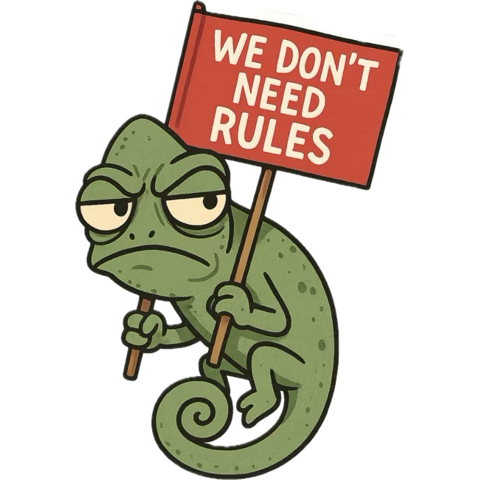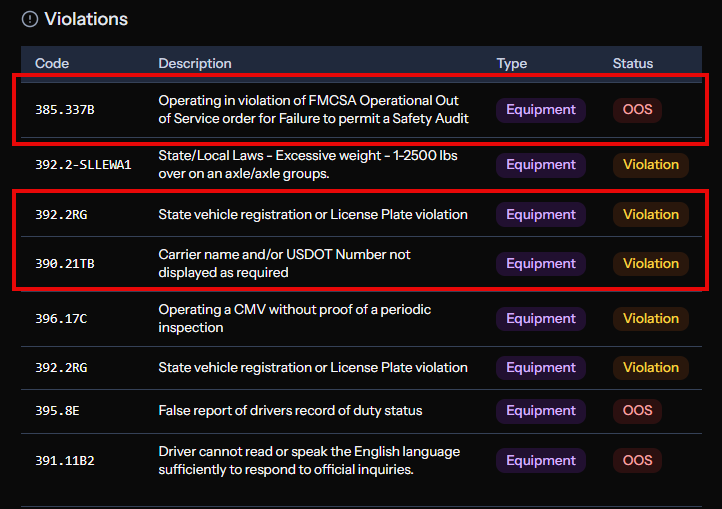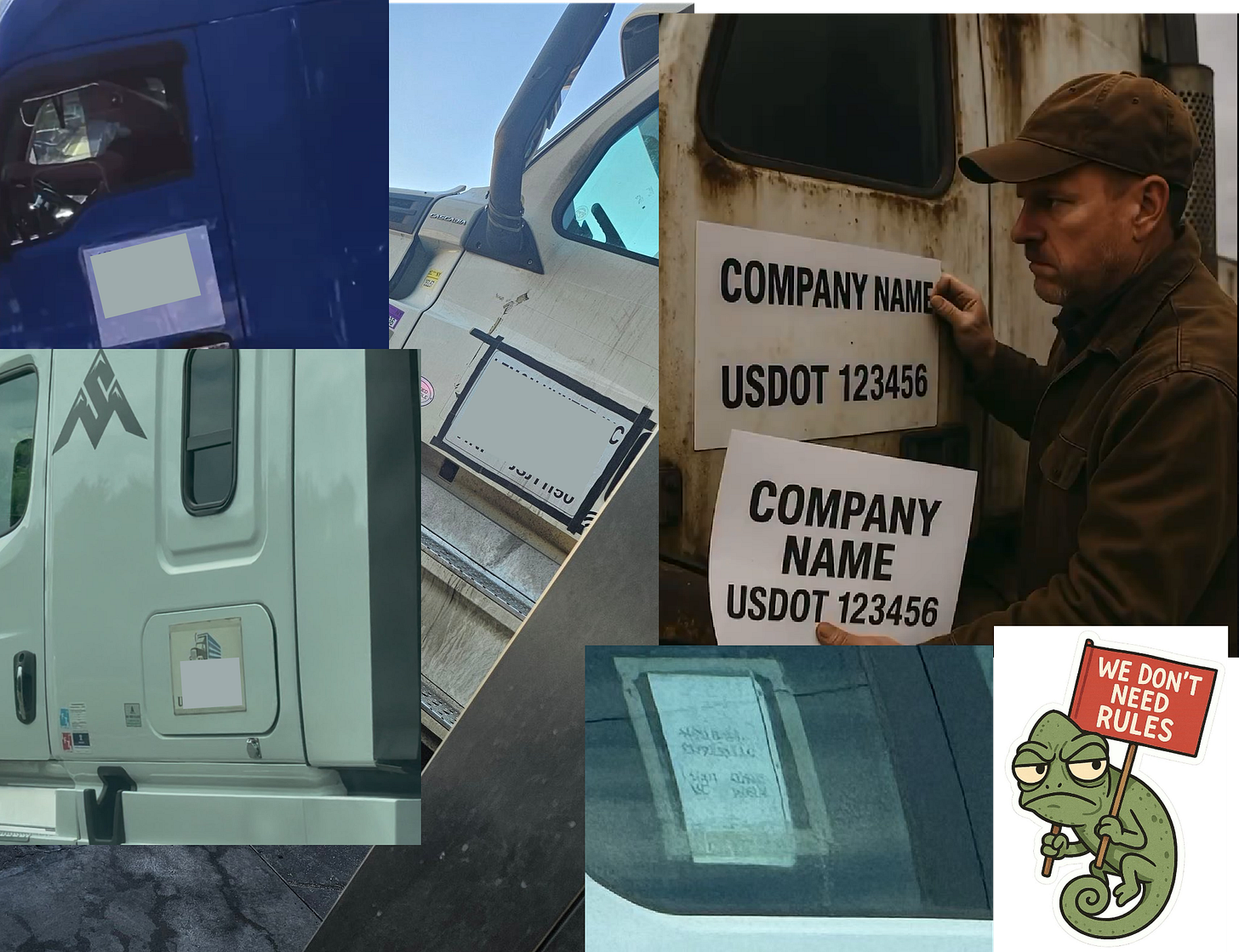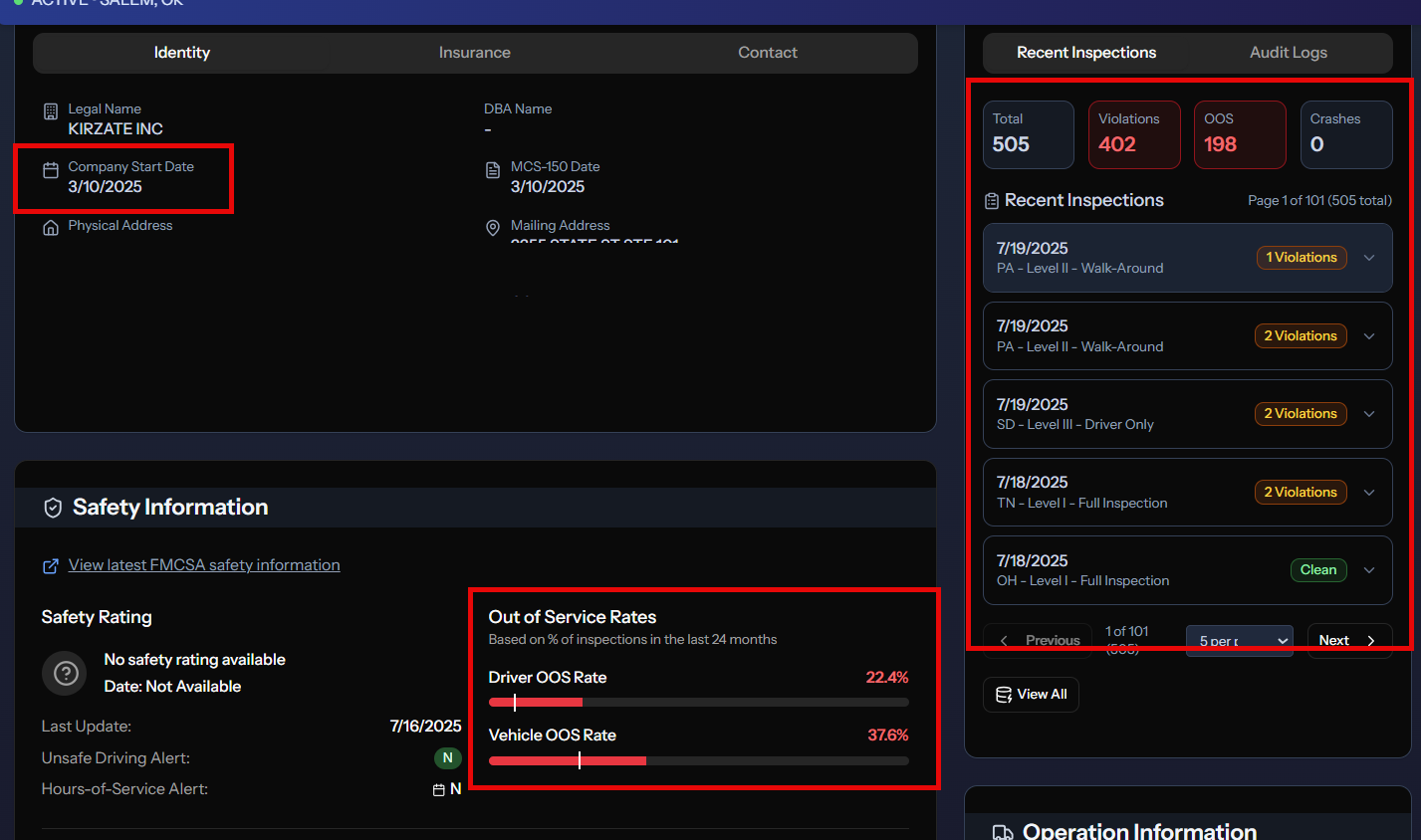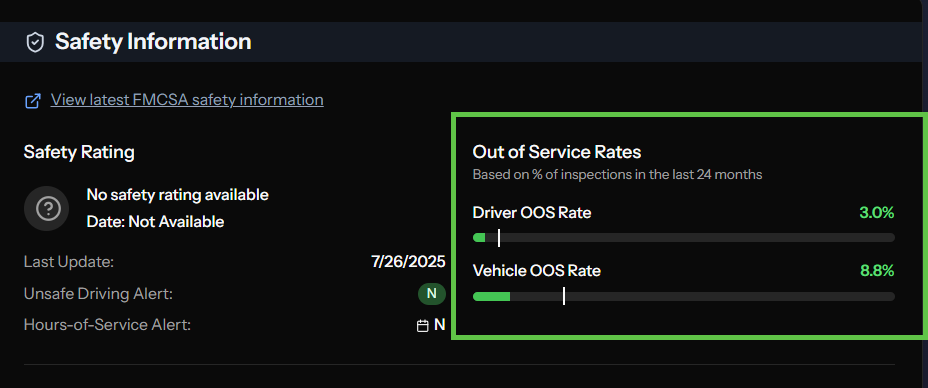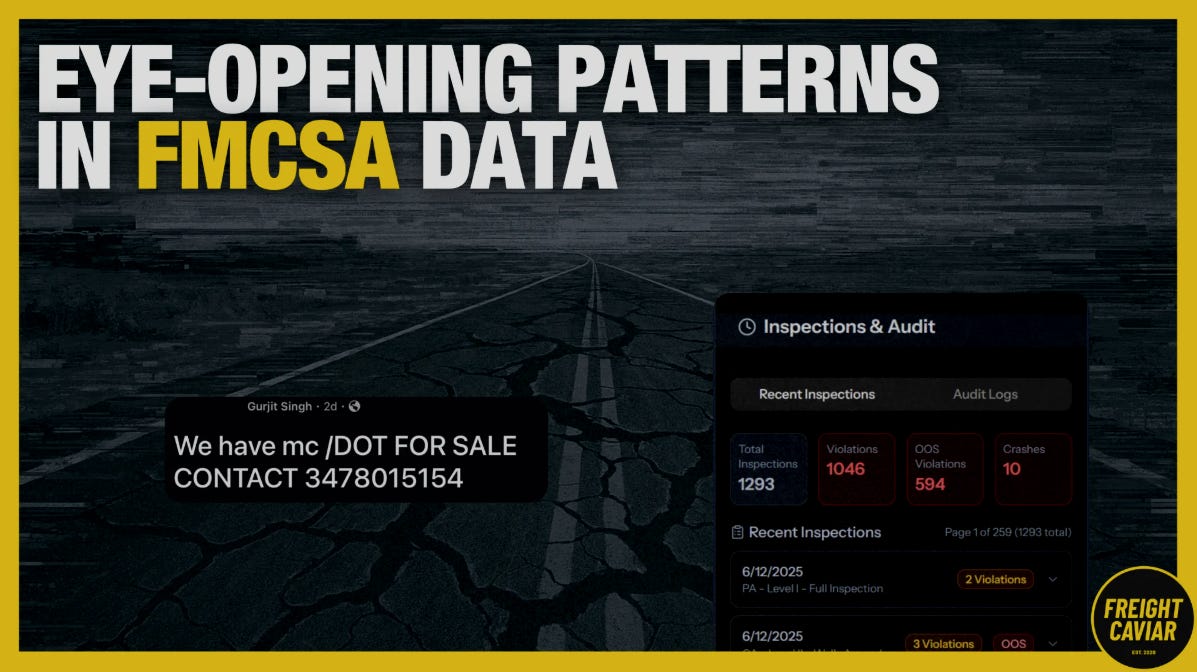Listening in on an X space tonight, I realized we need a clear, public-facing definition of one of the most intriguing (and dangerous) schemes in American trucking.
So, here it is plain and simple.
What Is a Chameleon Carrier?
A chameleon carrier is a trucking company that shuts down, often due to safety issues, legal problems, or fraud, and then reincarnates under a new name to avoid consequences.
They have a stack of new U.S. Department of Transportation (USDOT) numbers, change the numbers on the same trucks, and keep moving freight. If this sounds like identity theft for businesses, you're not far off.
These companies are “reborn” to get out of:
FMCSA penalties (the federal agency responsible for trucking safety)
High insurance premiums
Pending investigations or lawsuits
Bad public safety scores that brokers and shippers use to screen carriers
Think of them like someone getting kicked out of a bar and walking back in wearing a different hat and t-shirt.
Leaving the bar scene, let’s get back to trucking.
Imagine a trucking company with a long history of safety violations, crashes, or outright fraud. The government shuts it down. End of story, right? Nope. Wrong.
Next week, the same company will be back on the road. New name, new address, new USDOT number… but it’s the same trucks, the same people, and the same horrible operations.
Why You Should Care (Even If You’re Not in Freight)
You might not work in logistics, transportation, or trucking. You may not be familiar with what a load board is. But the consequences of chameleon carriers have a direct impact on you. Why? How? Because you, your family, and your friends drive on the highways of America.
They cause crashes. Chameleon carriers are 5 to 9 times more likely to be involved in severe accidents compared to legitimate companies.
They endanger your family. They often hire unqualified drivers, skip maintenance, and illegally skirt hours-of-service rules.
They exploit loopholes in federal oversight. The FMCSA does not proactively cross-reference new applicants with previously shut-down carriers.
They jack up costs for honest businesses. Law-abiding carriers and brokers bear the cost of fraud-driven rate undercutting and insurance scams.
And if your package, prescription, or produce shipment was late, missing, or mysteriously “lost in transit”? There's a chance a chameleon carrier was involved.
How They Pull It Off
The playbook is very simple:
Close the company. Let the liabilities die with it. Who cares anyway?!
Create a new company, or grab one of the 10 laying around.
Register a new USDOT number, buy one off Facebook, or grab one of the 10 laying around.
Change just enough on the USDOT record to throw off basic vetting.
Keep the same trucks, drivers, and dispatchers.
Get back to booking freight.
And use low rates to undercut the competition
When you rack up enough violations or wrecks? GHOST. Ignore FMCSA letters. Stop answering calls.
Rinse and repeat. Start again at #1.
*What I find genuinely amusing is watching it unfold in real time. Violations against the old USDOT because, evidently, not every driver got the memo to tape on the new number.
Why Doesn’t the Government Stop Them?
The Federal Motor Carrier Safety Administration (FMCSA) does try, but the system is very broken:
There is no automatic link between new applicants and old entities.
The FMCSA relies on antiquated technology, self-reporting, and tip-offs from the public.
Investigations can take months, and by then, the carrier has already morphed again.
This isn’t just a loophole. It’s the inevitable outcome of a regulatory system built on hope rather than enforcement. And maybe that was the point.
How to Spot a Chameleon (Even If You’re Not a Trucker)
The easiest red flag —> The company name and USDOT number are taped on the side of the truck (with or without tape residue).
If you suspect you’ve found a chameleon, here’s what you do next:
Go to searchcarriers.com → upload or take a photo of the side of the truck, or type in the USDOT or MC Number.
Review the carrier’s profile.
Here’s a few things to look for:
A newly registered DOT number with incredibly high OOS rates (as indicated by the red numbers).
A newly registered DOT number with an incredibly high number of inspections and violations.
And here’s an example.
This carrier started operating on March 10, 2025 and have racked up 505 violations since. On this record, they have 2 registered trucks. Yes, just two trucks. This is an insane number of inspections and violations, even if they actually have 100 trucks (which they probably do).
In contrast, here’s a company that started in 2010 and has 47 trucks registered.
If it walks like a duck, quacks like a duck, but goes by a different name on Tuesdays… It’s probably a chameleon.
What Needs to Change
Chameleon carriers thrive because we don’t have:
A real-time vetting system for updating the existing USDOT records
A centralized database of carrier ownership (previous and current records) and any possible affiliations
Serious penalties for identity-hopping and fraud
Until that changes, the trucking industry remains one of the few places in America where a company can get shut down for killing someone… and be back in business tomorrow.
I wrote about the FMCSA database in detail for FreightCaviar, “Eye-Opening Patterns in FMCSA Data.”
The American freight system moves everything you touch. It's the invisible engine behind your economy, your grocery store, your Amazon cart. But behind that curtain, bad actors are playing a dangerous game of deception. And most people have no idea.
If you’ve ever wondered why we keep hearing about deadly crashes involving “rogue” trucking companies with minimal or no track record. Or the investigations seem like they take far too long. Now you know.
It’s not just shady.
It’s a mess.
It’s dangerous.
It’s systemic.
And it's time we call it what it is: A national security risk of companies and drivers running 80,000-lb trucks.


